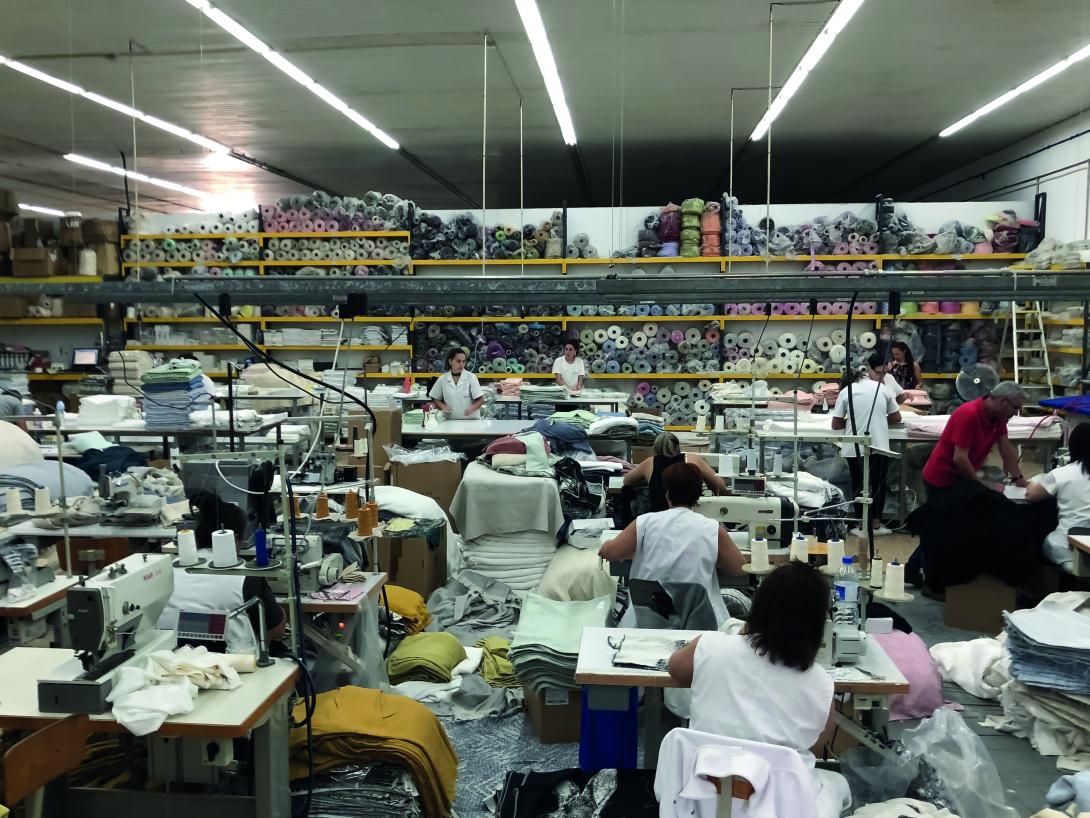
Photo by Galina Ershova | Dreamstime.com
No matter how you feel about it—globalization shapes our everyday life. Clothes we buy were manufactured in Bangladesh, the berries we eat grew in Peru, and you can order anything you like from global companies like Amazon. Dinner can be anything from Middle Eastern to Thai, and your neighbor might speak a language you never heard of before.
It is a sign of the times. Especially after the fall of the Iron Curtain in 1989, free trade was seen as the solution to bring underdeveloped countries into a common market, and companies began to experience more possibilities than ever before.
If asked, most people today see globalization negatively: a poll done by Ipsos in 2021 asking adults in 25 countries shows that worldwide only 48% of those surveyed agree that globalization is a good thing for their country. That is 10 percentage points less than in 2019, before the COVID-19 pandemic.
While people view globalization less favorably in most countries, it continues to vary widely among them, ranging from 72% in Malaysia to 27% in France. In the U.S., 42% had a favorable view, while in Canada it was slightly higher at 46%. However, most people agree that expanding trade is a good thing, but maintain there should be more trade barriers put in place to set some limits of foreign goods and services imports.
Can globalization be reversed at this point? Is it really something beneficial for the worldwide common good? And if you could reverse it, how might we achieve a more equitable economy? Here are a few things that globalization brought:
Our horizons broadened
Obviously, most of us cannot imagine how life was before the world became more connected, or before we had neighbors from different cultures. Our diversity widens our perspective.
In many instances our openness to different ways of reasoning has led to greater understanding and concern for one another.
As always, there is also a downside: our lives have become increasingly more complex, and we have more choices than ever, which can be overwhelming.
However, according to a 2021 Pew Research study, a majority of Americans (57%) say the fact that the U.S. population is made up of people of many different races and ethnicities is a very good thing for the country, and another 20% say this is somewhat good.
Calling became much easier
If you work or live far away from your family, it’s easier and cheaper than ever to stay in touch. Before video calls or internet phone calls were widely accessible, even a brief phone call from one continent to another could easily cost $100.
The possibility to see firsthand what happens in other countries makes the suffering that people encounter more relatable.
Again, there can be a counter effect: if we see too much suffering, we might despair or block out what’s going on in the world.
Education opportunities opened up
Only a few decades ago, people were inclined to look for employment in their hometowns. Higher education often meant moving away from your family, and who could even think about studying marine biology when living far away from the coast? Today everyone has more opportunities than ever.
Life got more diverse
While some people might have a certain nostalgia for a time when everyone spoke the same language and looked the same, most of us would agree that our life has become just so much more colorful amid our diversity. Participating in an iftar to break the fast during Ramadan, tasting Indian food, or learning about the role of family in Hispanic cultures enables us to perceive how vast our humanity has become and how interconnected we really are.
Everything became easier to get
Products that were once only available to people who could afford them are now accessible to the vast majority, from exotic food items to cell phones and computers. Between 1975 and 2008, the number of products in the average supermarket swelled from an average of 8,948 to almost 47,000, according to the Food Marketing Institute.
Education went online
Be it within a country or on a worldwide scale, globalization can bring more opportunities to those who live in remote areas. A surprisingly positive outcome of the pandemic has been that online education is better developed than ever. This can bring new opportunities to developing countries in need of educated young people to effect change for the better.
We became more tolerant
In an ideal way, this diversity can help us to understand that no matter the color our skin has or the language we speak, we face many of the same struggles and run in to the same obstacles in leading happy, meaningful lives.
The recent pandemic was just an example. In fact, a study showed that tolerance for different cultures and lifestyles has gone up from about 50–60% to 60–80% over the past four decades (sciencedirect.com).
Equality and freedom spread
Remembering a time when women could not vote, or when people of color were banned from attending school, forced to live in strict segregation from others in the community, we are enraged by these circumstances that continue to exist.
However, there is evidence that a sense of equality and freedom is spreading around the globe. Even countries that still discriminate against women and others are taking steps toward greater openness—like in Saudi Arabia, where women are now allowed to drive.
People yearning for greater democratic forms of government, free speech and less censorship of accurate communication are more visible through the internet today, and their efforts to fight against oppression can be supported and encouraged by an international community.
We started looking the same
With globalized companies and social media influencers, our different cultures look more and more the same. Different ways of dressing are reduced to a mere folklore; traditions are only performed for tourists, while everyone wears the same clothes manufactured by global companies. While we can explore and wear whatever we want, people follow similar role models.
One sign of this trend is the loss of regional languages: there are 573 known extinct languages, and 3,045 languages are endangered today—42% of all living languages (ethnologue.com).
The jobs went abroad
Lower wages and less worker’s rights in poorer countries are the reason that many manufacturing jobs are gone—even with the current trend of “re-shoring” and producing more stuff at home—most of these jobs will never come back. This is especially hard for people who don’t have college education and often need to hold multiple jobs to make ends meet.
According to the U.S. Bureau of Labor statistics, at least 7.5 million jobs in manufacturing got eliminated since 1980. However, there are more jobs in other areas (service, IT) that were added. Right now, according to the Bureau of Labor Statistics, there are more than 11 million job openings that are unfilled.
Nationalism saw an uptick
Our societies changed rapidly in the last decades. This creates less sense of belonging to a community, and it can even lead to a backlash of negative nationalism. There is a worldwide trend to less democracy and more dictatorship, caused by fear and the false hope that a strong leader will help to bring the country forward.
Since 2007, the number of countries that declined in sense of freedom and democracy is higher than the number of those that improved (25 vs 60 in 2021, freedomhouse.org).
We got more anxious
More people are worried about the future than ever. According to a poll conducted at the end of 2021, more than half the American public is “extremely worried” about where the country is headed over the next 12 months. The mood hasn’t been that pessimistic since 2016.
But while 75% are saying that diversity is a value or priority in their organization, 32% see diversity as a barrier to progress in their organization too (pwc.com).












